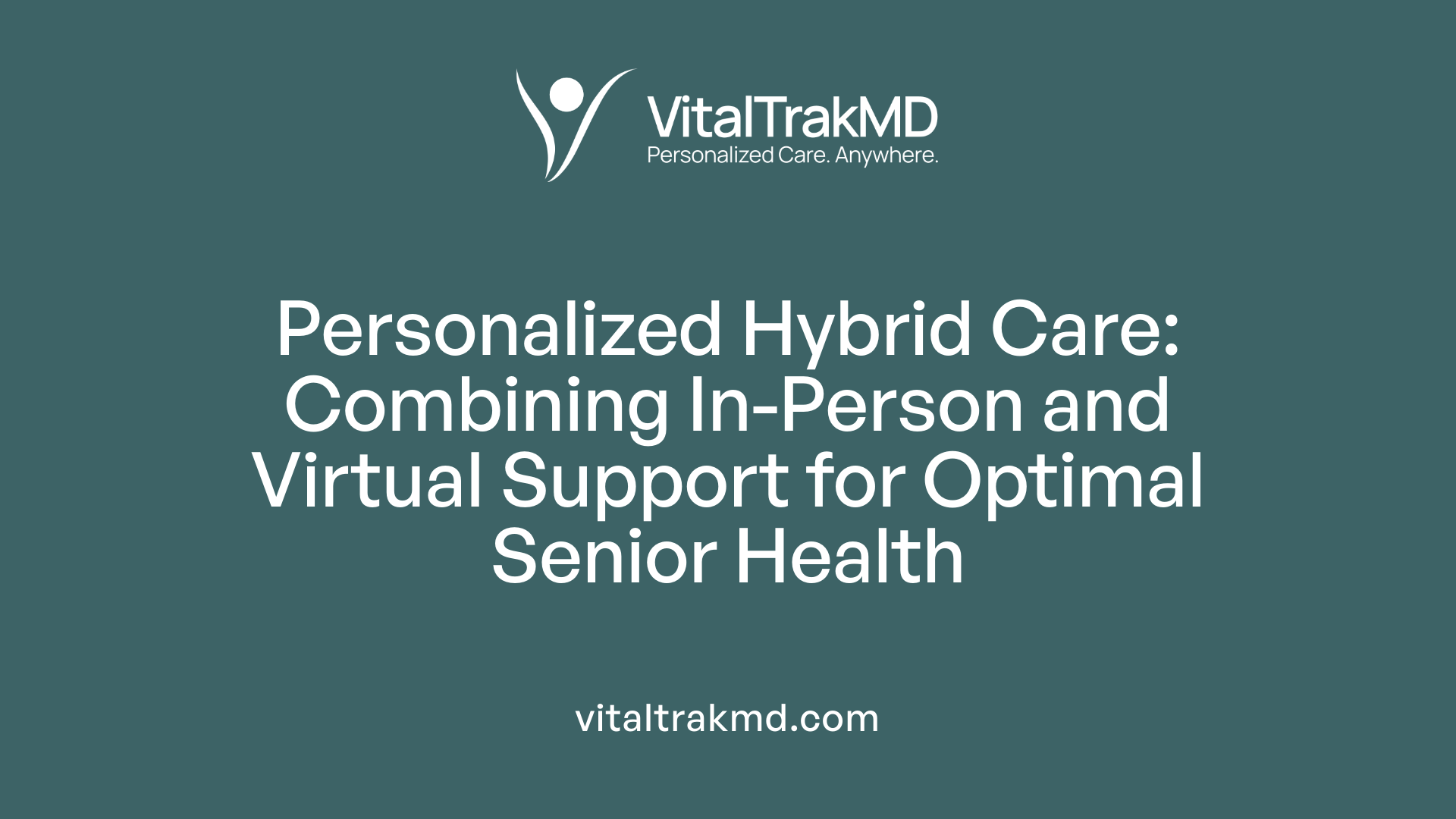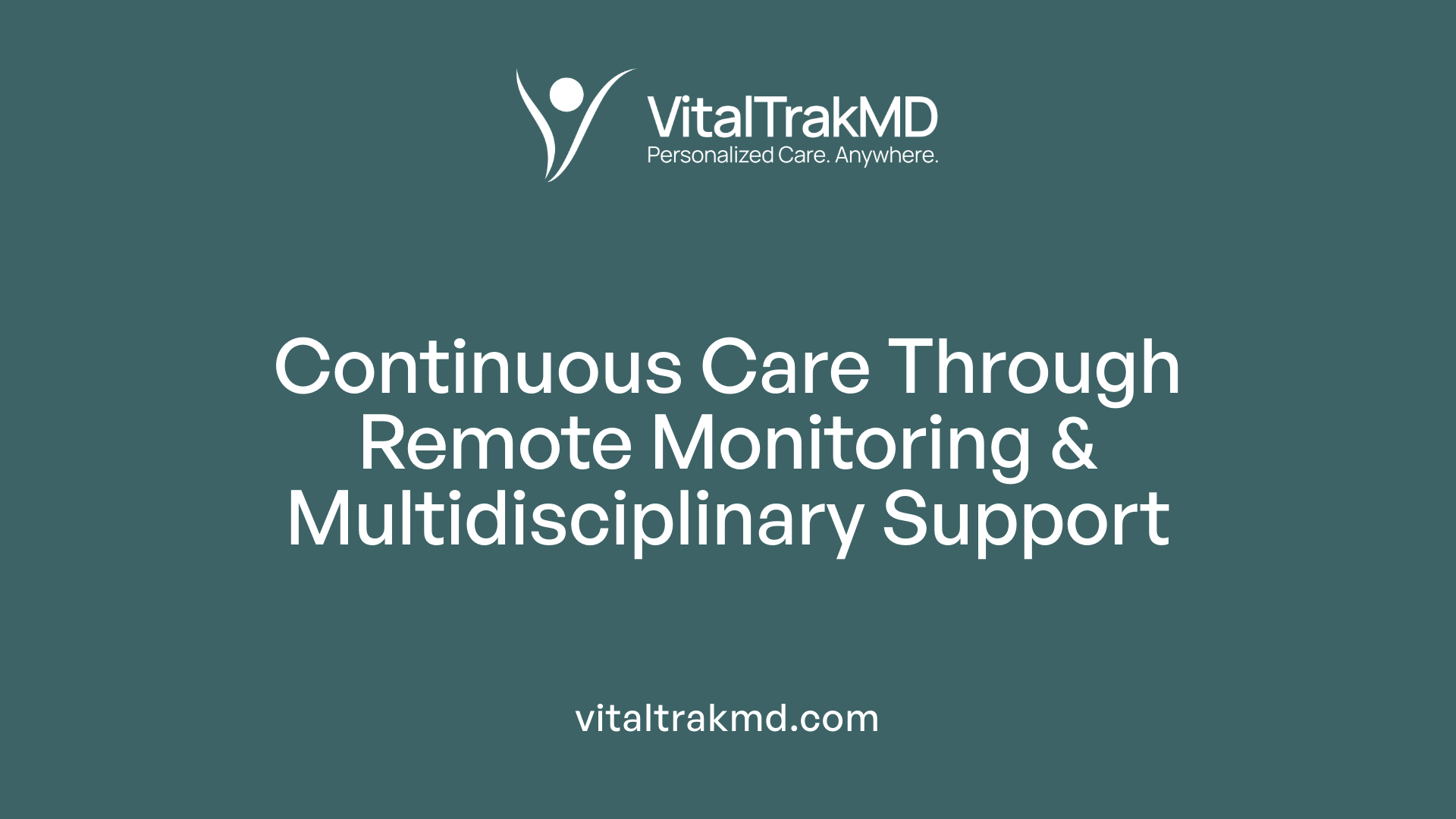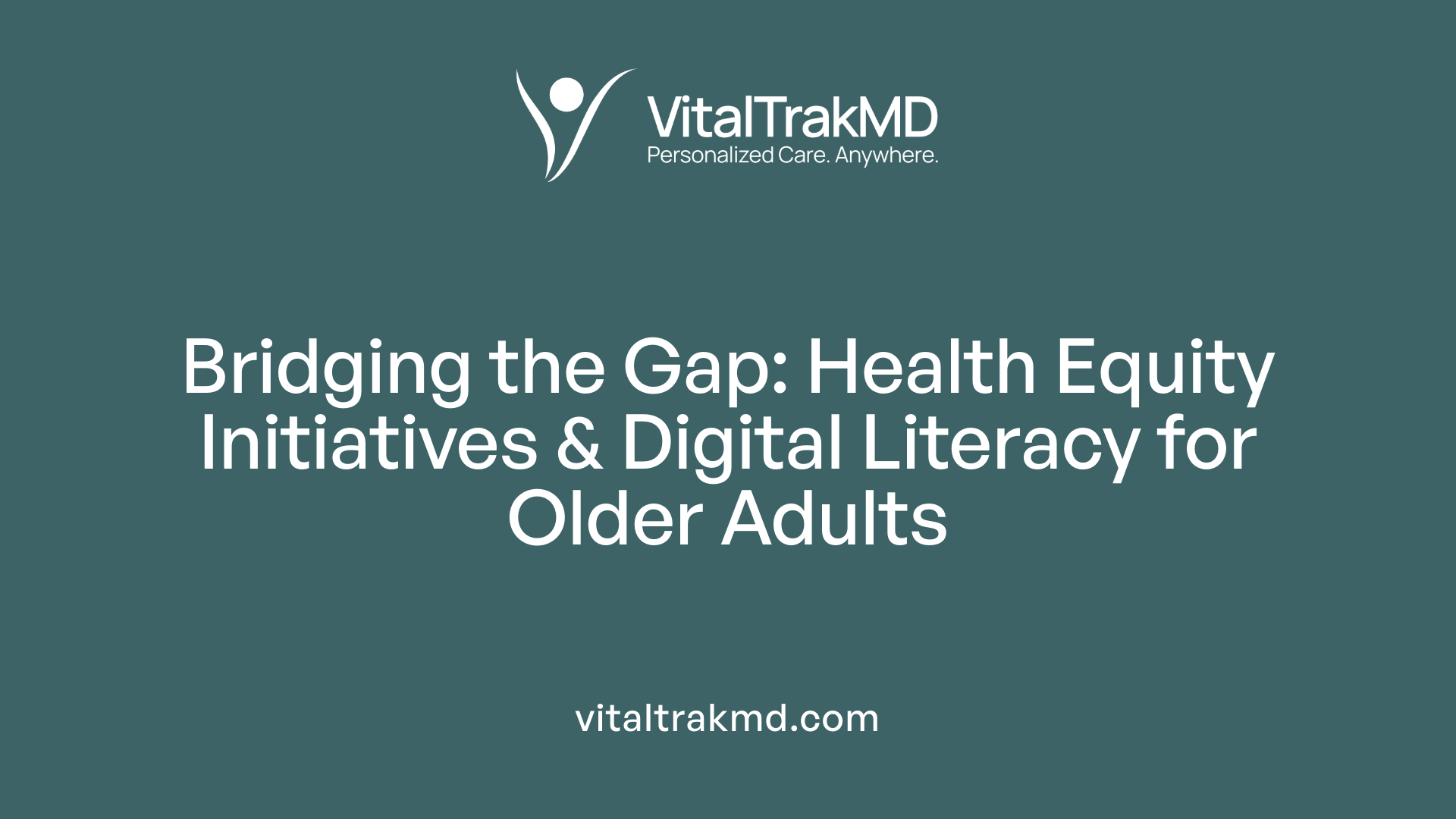How Hybrid Healthcare Supports Seniors in Adjusting Health Goals Over Time

Adapting Health Goals with Hybrid Healthcare
As seniors face shifting health challenges over time, maintaining wellness and managing chronic conditions require adaptable, personalized support systems. Hybrid healthcare—the integrated use of in-person and virtual care—emerges as a powerful model helping seniors to adjust health goals dynamically, improve quality of life, and sustain long-term wellness. This article explores how hybrid healthcare addresses seniors' unique needs, emphasizing comprehensive programs that promote weight management, chronic disease control, and health equity.
Personalized Hybrid Care Plans Tailored to Seniors’ Evolving Needs

Integration of in-person assessments with virtual visits
Enabled Healthcare provides a hybrid model combining in-person assessments with virtual visits to closely monitor seniors' health. This approach allows detailed physical evaluations alongside convenient, ongoing virtual support, including wellness coaching that incorporates mindfulness and adaptive yoga. The hybrid system ensures comprehensive care while fitting seniors’ diverse living situations, whether at home or in care facilities.
Collaboration with primary and specialty providers
A hallmark of Enabled Healthcare's model is its strong collaboration with patients' existing primary care and specialty providers. By integrating efforts, they create a seamless experience that coordinates all aspects of care. This team-based approach enhances management of chronic conditions and reduces duplicative or unnecessary services, such as emergency room visits.
Personalized care planning
Patients receive highly individualized care plans tailored to their medical history, lifestyle, and preferences. Enabled Healthcare customizes these plans by leveraging real-time data from remote monitoring equipment and virtual feedback from multidisciplinary teams. This ensures adaptive, responsive care that evolves with each patient's needs.
What are the key components to consider when choosing a wellness or weight loss care program?
When selecting a wellness or weight loss program for seniors, personalization and provider integration top the list. Programs should offer tailored nutritional guidance and behavioral support combined with physical activity plans. Incorporating virtual coaching and technology fosters sustained lifestyle changes while addressing not just physical but also psychological health. Enabled Healthcare’s approach exemplifies these principles, providing coordinated, evidence-based care that supports lasting well-being.
| Aspect | Description | Example Services |
|---|---|---|
| Hybrid Care | Combines in-person and virtual visits for comprehensive care | Remote assessments + virtual wellness coaching |
| Provider Collaboration | Works with primary and specialty doctors for coordinated care | Shared plans and communication |
| Personalization | Customizes care plans based on individual health data | Remote monitoring + personalized nutrition plans |
| Wellness Program Components | Emphasizes nutrition, behavioral support, physical activity | Mindfulness, adaptive yoga, virtual coaching |
Virtual Wellness Coaching as a Pillar for Sustainable Weight Management

What are the most effective wellness programs for achieving sustainable weight loss?
Effective wellness programs blend balanced nutrition, regular exercise, and behavioral changes to help individuals lose weight sustainably. Virtual wellness coaching enhances these programs by delivering personalized meal planning and tailored physical activities remotely.
Enabled Healthcare offers virtual wellness coaching that integrates mindfulness and adaptive yoga techniques specifically designed for seniors. These sessions help older adults improve their physical flexibility and mental focus, supporting a gradual and sustainable approach to weight management.
Mindfulness practices within the coaching encourage greater awareness of hunger cues and emotional triggers, reducing overeating and promoting healthier choices. Adaptive yoga offers gentle movement options suitable for seniors, aiding mobility and enhancing overall wellness without strain.
By combining personalized nutritional guidance with mindfulness and adaptive physical activity, virtual wellness coaching creates a holistic environment fostering long-term healthy habits. This approach is particularly beneficial for seniors who may face mobility challenges and prefer to age in place while maintaining wellness.
Ultimately, virtual coaching provides ongoing support and motivation, enabling seniors to more effectively manage their weight and promote general health within the comfort of their homes or care facilities.
Remote Monitoring and Multidisciplinary Support: Ensuring Continuous Care and Goal Adjustment

How Do Remote Monitoring Systems Aid Chronic Disease Management?
Remote patient monitoring plays a vital role in managing chronic conditions such as hypertension, COPD, and congestive heart failure. Devices track vital signs like blood pressure, oxygen levels, and heart rate from patients' homes or care facilities, enabling early identification of potential issues before they escalate.
What Role Does Multidisciplinary Virtual Support Play in Patient Care?
Enabled Healthcare and similar programs provide ongoing virtual support through teams that may include nurses, physicians, dietitians, and wellness coaches. This approach offers continual guidance, adjustments to care plans, and emotional encouragement tailored to each patient's needs, ensuring care is responsive and personalized.
How Is Emergency Room Use Reduced via Coordinated Care?
By closely collaborating with patients' primary and specialty providers, these programs act as a health safety net, coordinating treatments and monitoring to prevent complications. This proactive care model significantly decreases the frequency of unnecessary emergency room visits, freeing healthcare resources and improving patient wellbeing.
How Do Care Programs Support Individuals in Maintaining Long-Term Wellness and Weight Management?
Personalized programs like Virtual Medical Weight Loss provide nutritional guidance, medication management, and consistent virtual coaching. Coupled with remote monitoring, these initiatives help patients stay on track, adapt goals as needed, and sustain healthy behaviors that promote long-term wellness and effective weight management.
Community-Based Health Equity Initiatives and Digital Literacy for Older Adults

What Are Health Equity Interventions Targeting Urban Low-Income Seniors?
The Health and Wellness Equity Promotion Strategy (HWePS) is a community-driven program designed specifically for older adults living in urban, low-income neighborhoods. This multi-tiered intervention focuses on improving health outcomes by enhancing health literacy, encouraging personalized self-care through nurse coaching and peer support, and promoting activities that foster healthy living and aging within the community.
How Does the Use of ICT Tools Like Smartphone Apps and SMS Enhance Communication?
HWePS integrates Information and Communication Technology (ICT) such as smartphone applications and SMS messaging to facilitate continuous interaction between participants and healthcare facilitators. These digital tools help improve health literacy by delivering timely reminders, educational content, and personalized advice, ensuring seniors stay engaged and informed about their health management.
In What Ways Does the Care Model Address Social Determinants of Health?
Guided by frameworks like the expanded chronic care model and the Systems for Person-centered Elder Care, the intervention tackles upstream social factors influencing health. It looks beyond medical treatment to consider the social, environmental, and economic challenges faced by disadvantaged seniors. By incorporating community initiatives and personalized care plans, the program aims to reduce disparities and promote equitable, healthy aging across multiple levels—individual, interpersonal, and community.
The combination of community engagement and digital literacy in HWePS offers an innovative pathway to improve well-being and quality of life for older adults facing health inequities in urban settings.
Post-Discharge Support and The Role of Telemedicine in Reducing Healthcare Burden

How does virtual post-discharge guidance help prevent readmissions?
Virtual post-discharge support plays a crucial role in guiding patients through their recovery after hospital stays. Enabled Healthcare’s virtual care center facilitates this process by ensuring clear communication, medication management, and timely health monitoring. This reduces the risk of complications that might otherwise lead to hospital readmissions, improving continuity of care and patient safety.
What is ExpressCare Urgent Care Telemedicine and how does it aid seniors?
ExpressCare Urgent Care Telemedicine provides video consultations for seniors experiencing non-life-threatening issues such as the flu or minor injuries. By offering immediate access to medical advice without needing to visit an emergency room, this service alleviates unnecessary ER visits and helps seniors receive timely care in the comfort of their homes or care facilities.
In what ways do eVisits improve access and convenience for seniors?
eVisits enable seniors to report symptoms, receive diagnoses, and obtain treatment plans remotely for minor health concerns. This virtual service enhances convenience by eliminating travel and wait times, and increases access to healthcare professionals who can promptly manage common ailments, promoting overall well-being and reducing strain on traditional healthcare settings.
The Promise of Hybrid Healthcare in Senior Wellness Management
Hybrid healthcare models are transforming how seniors manage their health goals over time by combining the strengths of in-person care with advanced virtual solutions. By integrating personalized coaching, remote monitoring, community-based support, and telemedicine services, these programs help seniors maintain wellness, manage chronic conditions, and achieve sustainable weight management. Importantly, they enhance accessibility, promote health equity, and empower seniors to adapt their goals according to changing needs, ultimately improving quality of life and reducing healthcare burdens.
References
- Enabled Healthcare Launches Hybrid Clinic to Help Patients ...
- How the hybrid healthcare model is transforming patient ...
- Evaluation of a technology-enhanced, integrated community ...
- The Potential Role of Digital Health in Obesity Care - PMC
- Impact of a Community-Based Weight Management ...
- The Impact of Health Coaching on Weight and Physical ...
- Choosing a Safe & Successful Weight-loss Program - NIDDK
- How to Choose the Best Medical Weight Loss Program
- How to Choose the Right Weight Loss Program for Your ...
- A Comprehensive Guide to Choosing a Weight Loss Clinic
Recent articles
Want to Feel Better and Live Healthier?
Join hundreds of patients taking control of their health with personalized care that fits their life – not the other way around.
Rated 4.8/5 by 32+ customers







